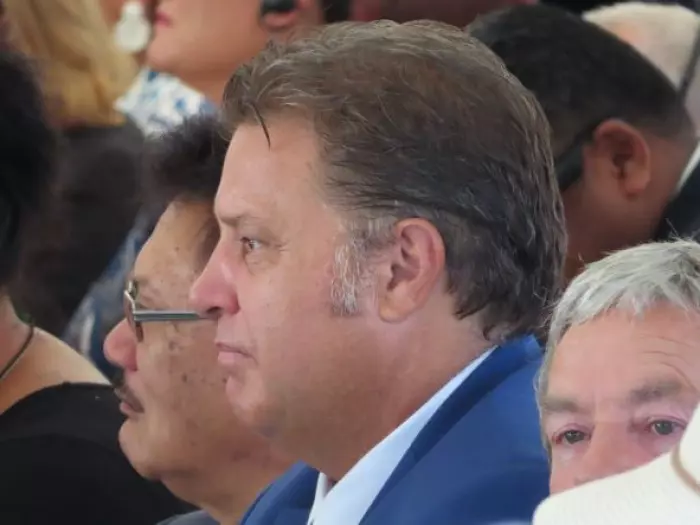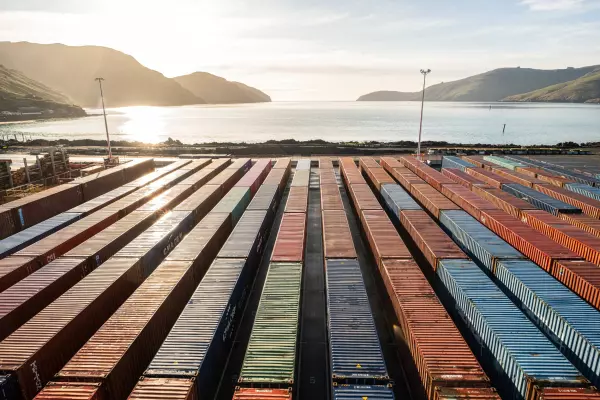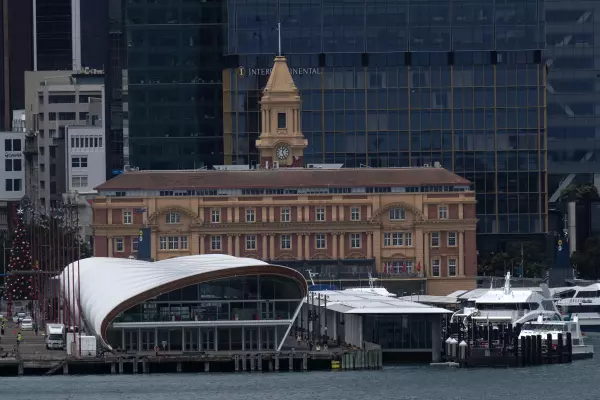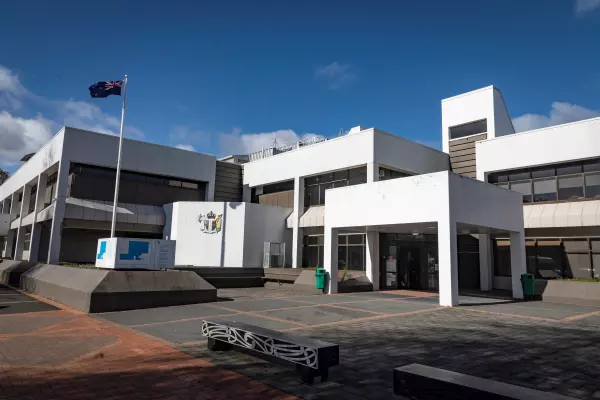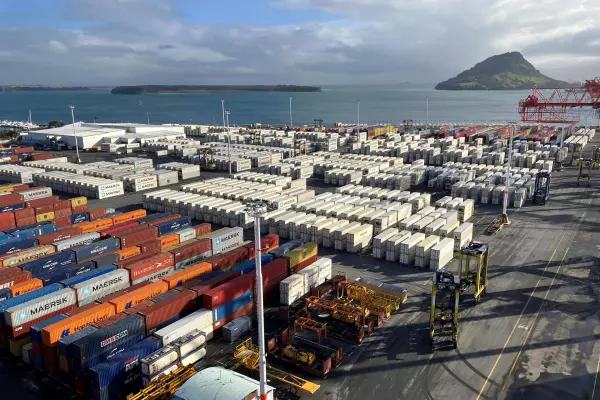The departure of KiwiRail chief executive Greg Miller, partway through a board-ordered probe, has been met with relief it might clear the way forward for the state-owned company.
Acting board chair Sue McCormack issued a statement on Wednesday morning saying Miller felt it was best for him, his family and KiwiRail to step down because allegations in the media – largely about his leadership style and the culture he presided over – had become too distracting.
Miller resigned partway through a board-ordered probe interviewing about 20 former and departing senior executives and managers. The board ordered the independent review, which is being carried out by workplace consultant Kevin McMahon, following media reports linking the exodus to Miller’s management style.
Miller, who was appointed chief executive in May 2019, said he rejected the allegations. In a statement, Miller said he was proud to have led KiwiRail during such a transformational period.
“I wish Team KiwiRail well as they deliver projects which will see rail enjoy a greater role in New Zealand’s transport sector in future.”
In an interview with BusinessDesk, McCormack said the board took its obligations as a “good employer” seriously and had acted swiftly once allegations were raised in the media.
The board had directed McMahon, the independent investigator, to report back before the end of the month. If there were any concerns or shortcomings, the board would act on them, McCormack said.
KiwiRail deputy chief executive Todd Moyle, who is leaving the organisation to take up a position at Ngāi Tahu's commercial arm, has been appointed acting chief executive for now, a role he held previously when Miller served as board chair.
McCormack said she was confident she and Moyle, who had agreed to stay on into the new year, would “steady the ship”.
While it had yet to be announced, McCormack said a new board chair was expected to start on Jan 1. An appointment would be announced soon.
McCormack said she would work with the new chair on a process to appoint a new chief executive for KiwiRail. For privacy reasons, she wouldn't say if Miller had received any form of payout or settlement.
State-owned enterprises minister David Clark wouldn’t comment on the appointment process. His office said the matter was under active consideration.
In a statement, Clark said he had been advised of Miller’s resignation yesterday. It was an employment matter between Miller and the board, he said.
“I have the highest expectations for KiwiRail to be operating as an exemplary employer – and this has been relayed very clearly to the chair.”
Union sees chance to rebuild
The resignation news broke a day after the Rail and Maritime Transport Union (RMTU) issued strike notices for 24-hour stoppages in the South Island on Decr 16 and the North Island a day later.
RMTU general secretary Wayne Butson said he was glad the distraction around Miller had ended and he hoped KiwiRail and the union could now focus on resolving negotiations for a new collective agreement.
Relations between the union and KiwiRail had deteriorated markedly under Miller.
“I think the decline in the relationship between the company and the union is an integral factor of the current dispute," Butson said. "Hopefully that may now diminish."
National hits out at governance gaps
BusinessDesk reported last week that the RMTU and National’s state-owned enterprises spokesman, Mark Mitchell, had a shared concern about current governance gaps at KiwiRail, especially with the large amounts of public money being allocated to rail. The last permanent chair, Brian Corban, died in May and shareholding ministers have yet to appoint a replacement.
Following news of Miller’s resignation, Mitchell issued a press release accusing the government of incompetence over the strike and the alleged internal issues leading to Miller’s departure.
“The serious internal issues within KiwiRail have been widely known for a long time and quick action was required by the government to appoint a new chairman after the passing of Brian Corban. This didn’t happen.
“As a result, Minister Clark has allowed our internal supply chain to be hamstrung by an incompetent and rudderless KiwiRail."
Former staff speak out
A number of former KiwiRail staff, who spoke to BusinessDesk on the condition of anonymity, reacted with “relief” and “optimism” to Miller’s departure.
“It was gut-wrenching to see the decline in culture in that place,” said one former staffer, adding they hoped “things would be back on track, relatively quickly”.
In her internal email to staff, which thanked Miller, McCormack said KiwiRail needed to lift “women’s participation” and make sure their contributions were valued.
The new chief executive would need to “build effective working relationships with our unions” and understand “the importance of providing a workplace where diversity” was valued, she said.
Greg Miller's history
Miller, an experienced transport and logistics professional, was appointed KiwiRail board chair in November 2018 at the urging of the New Zealand First party, which is understood to have included the right to say on the chair and CEO appointments at KiwiRail as part of its coalition arrangements with Labour after the 2017 election.
Shortly before Miller joined the board, former chief executive Peter Reidy announced he was leaving to go to Fletcher Construction, triggering a search for a new chief executive.
In March 2019, Corban, then deputy board chair, wrote to KiwiRail’s shareholding ministers saying the board supported Miller becoming managing director, i.e. the chief executive and a director.
A mixed governance and management role is understood to have been the role that Miller had sought all along.
One board member, Mike Pohio, opposed the suggestion, as did Treasury. In a briefing to ministers, officials said the move wasn’t appropriate.
“Our view is that independence between governance and management is critical for accountability.”
In the end, Miller had to resign as chair to become chief executive.
However, several current and former KiwiRail staff allege he continued to exert out-sized influence over the board - an allegation McCormack has rejected.
During his time as chief executive, Miller progressed the procurement of two new Interislander ferries, massive new investment in the rail network that had begun under Reidy, and improved operating results.
KiwiRail posted an operating surplus of $63.2 million in the 2020-21 financial year, according to its latest results, up $23m on the year before.
However, his approach to commercial negotiations upset some traditional customers.
In a statement provided to BusinessDesk, former Port of Tauranga chief executive Mark Cairns said, of the three rail chief executives he dealt with, Miller was the most uncompromising.
“It was not a negotiation with Miller – it was his way or the highway.
“And unfortunately, that was what often ended up occurring, with modal shift back off rail onto trucks on the highway with significantly higher carbon emissions.”


